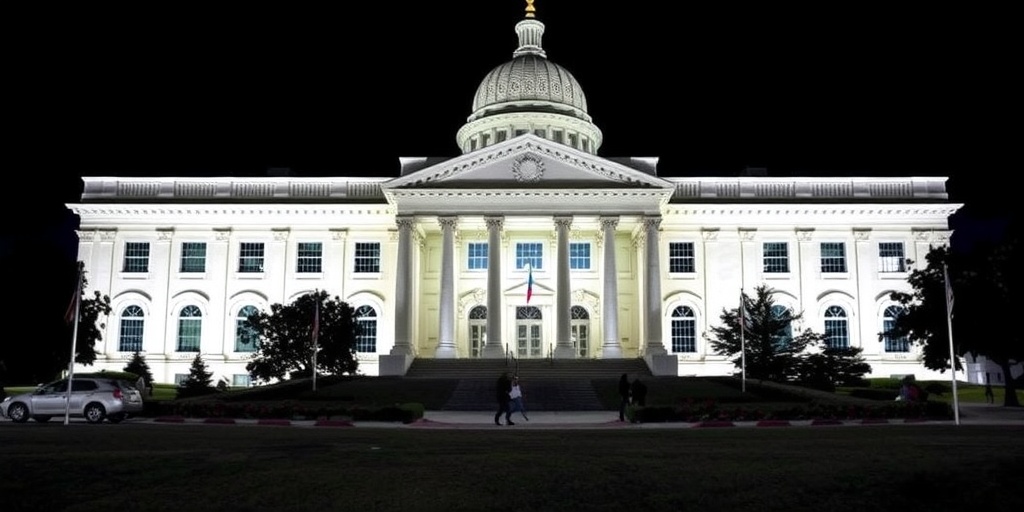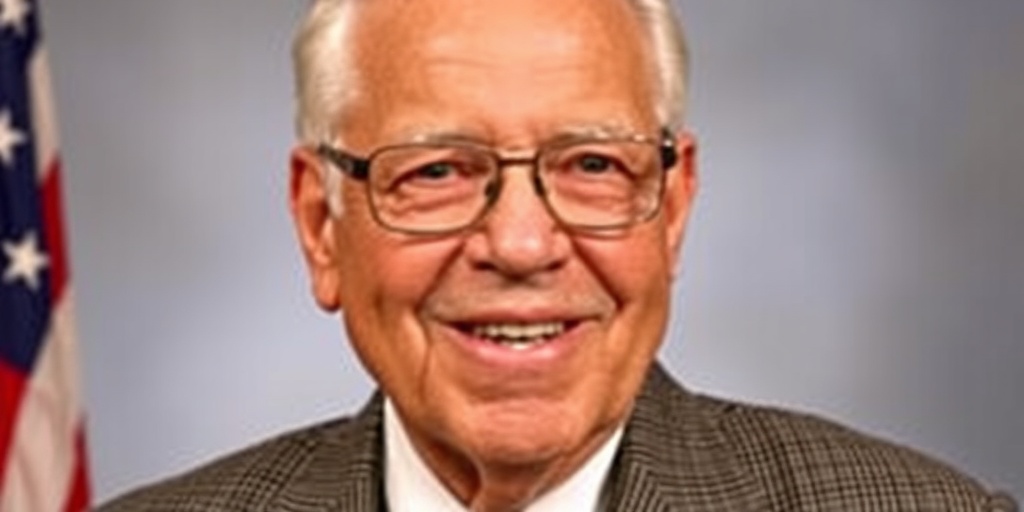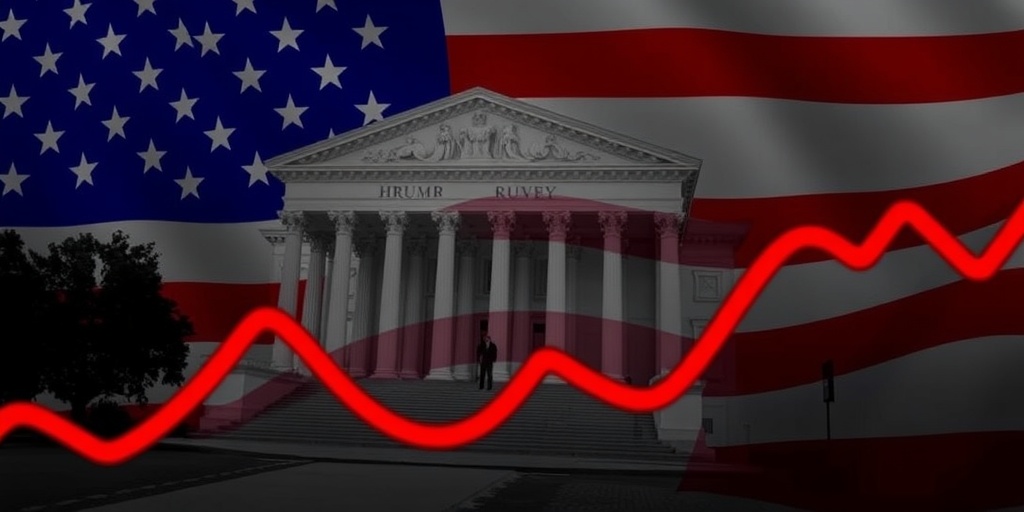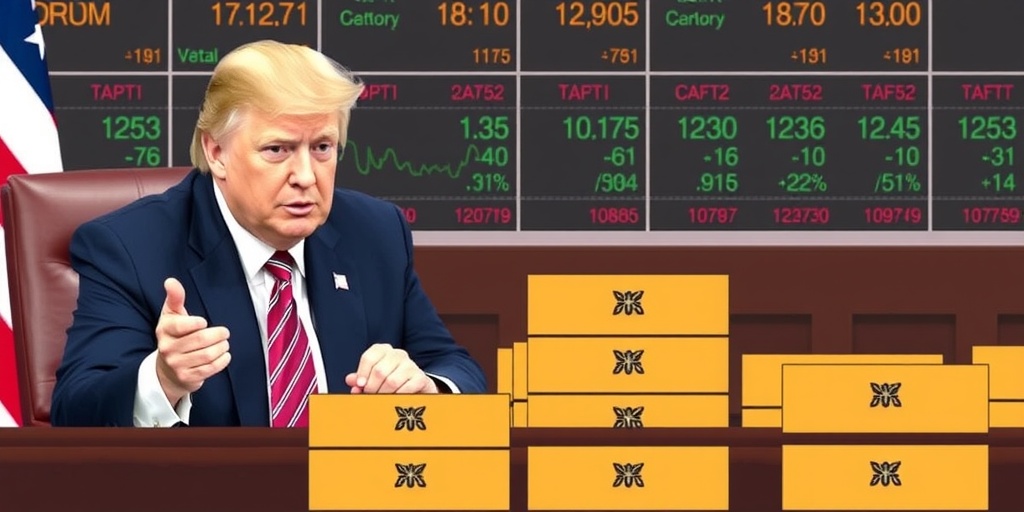Now Reading: Texas Case Highlights Invocation of Alien Enemies Act
-
01
Texas Case Highlights Invocation of Alien Enemies Act
Texas Case Highlights Invocation of Alien Enemies Act

Supreme Court’s Ruling on Venezuelan Deportations Stirs Legal Challenge and Implications for Immigration Policy
In a significant legal development, immigration lawyers are responding to the recent Supreme Court ruling stipulating that any legal challenges to the Trump administration’s initiative to deport certain Venezuelan migrants must be filed in the location where the detainees are being held. This decision has prompted a flurry of activity among lawyers representing affected individuals, as they navigate the implications for their clients.
The ruling comes at a time when a related case is underway in the Federal District Court in Brownsville, Texas. This case was initiated last month by Daniel Zacarias Matos, a Venezuelan migrant who claims he was threatened with deportation without due process under President Trump’s controversial proclamation that invoked the Alien Enemies Act. This law, originally passed in 1798, allows the government to deport individuals from nations deemed hostile during times of war or invasion.
Judge Fernando Rodriguez Jr. is presiding over Zacarias Matos’s case and recently issued an order halting his deportation until further examination of the facts could be conducted. Both Zacarias Matos’s legal team and the Justice Department are expected to submit opposing court documents this month, elucidating the circumstances surrounding his potential deportation and the legal ramifications of the administration’s actions.
Though the particulars of Zacarias Matos’s situation vary from those of other Venezuelans impacted by the Supreme Court’s ruling, his case could offer critical insights as the legal proceedings unfold. The court’s decision has significant ramifications for numerous Venezuelan migrants in detention, who now find themselves in a precarious legal predicament.
Zacarias Matos arrived in the United States in December 2023 with his eight-year-old daughter, fleeing the turmoil in Venezuela. According to court documents, he was taken into custody by federal immigration agents in October after being arrested for misdemeanor probation violations, which have since been dismissed. He was subsequently moved to the El Valle Detention Center in Raymondville, Texas, where many Venezuelan migrants are being held for deportation under the stringent measures authorized by the Alien Enemies Act.
While many of the detained Venezuelans have been accused of affiliations with the Tren de Aragua, a violent street gang from Venezuela, Zacarias Matos asserts that he has faced no such allegations. Despite this, he claims that officials informed him of their intent to deport him alongside other Venezuelans as part of the administration’s sweeping deportation plan.
On March 14, immigration agents attempted to place Zacarias Matos on a flight out of the country, but the attempt was unsuccessful due to inspection issues. Later that day, he was told he would be scheduled for another flight. When he raised concerns about lacking a formal deportation order, he was allegedly informed that a presidential directive was behind his impending removal.
Additionally, court documents indicate that Zacarias Matos was pressured to sign a voluntary departure order, with officials warning him that they would complete the paperwork on his behalf if he refused. The Supreme Court’s recent ruling has drawn attention to the procedural dimensions of how such deportations are handled, particularly the appropriate jurisdiction for legal challenges.
The justices determined that cases must be filed in Texas, where the detainees are located, contrasting with the initial filings in Washington. Importantly, the Supreme Court did not adjudicate the broader legal issue concerning the application of the Alien Enemies Act. Critics, including immigration lawyers, argue that there is no declared state of war or an invasion that justifies its use, emphasizing that Venezuelans should not be classified as threats linked to a hostile government.
As court filings related to Zacarias Matos commence next week, they are expected to delve into the legality of Trump’s invocation of the Alien Enemies Act and whether it can be justifiably applied to individuals like Zacarias Matos, who are seeking asylum from violence and persecution in their home country. Judge Rodriguez has mandated a series of briefings to be completed by the end of the month and has scheduled a hearing for May 5 to further consider the merits of the case.
This unfolding legal situation not only highlights the contentious nature of immigration policy in the United States but also the broader implications for individuals fleeing persecution. As more details emerge, the ramifications of the Supreme Court’s ruling and the outcomes of related cases will likely shape the future of immigration law and policy.
Stay Informed With the Latest & Most Important News
Previous Post
Next Post
-
 01New technology breakthrough has everyone talking right now
01New technology breakthrough has everyone talking right now -
 02Unbelievable life hack everyone needs to try today
02Unbelievable life hack everyone needs to try today -
 03Fascinating discovery found buried deep beneath the ocean
03Fascinating discovery found buried deep beneath the ocean -
 04Man invents genius device that solves everyday problems
04Man invents genius device that solves everyday problems -
 05Shocking discovery that changes what we know forever
05Shocking discovery that changes what we know forever -
 06Internet goes wild over celebrity’s unexpected fashion choice
06Internet goes wild over celebrity’s unexpected fashion choice -
 07Rare animal sighting stuns scientists and wildlife lovers
07Rare animal sighting stuns scientists and wildlife lovers





















